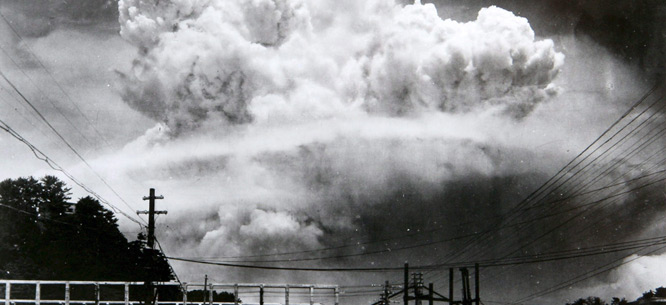70 Years After Hiroshima
70 Years After Hiroshima
Political theorists John Rawls, Jean Bethke Elshtain, Ronald Takaki, and Michael Walzer consider the moral and political implications of nuclear weaponry.

The dropping of the atom bomb on Hiroshima and Nagasaki, seventy years ago this week, killed over 200,000 Japanese citizens and destroyed the lives and livelihoods of countless others. It also inaugurated what we commonly refer to as the “atomic age”—a five-decade stalemate between the United States and the Soviet Union that seemed to threaten the entire globe with nuclear ruin. For the fiftieth anniversary of the dropping of the bomb on Hiroshima, Dissent asked a set of leading political theorists—John Rawls, Jean Bethke Elshtain, Ronald Takaki, and Dissent’s own Michael Walzer—to consider the lasting moral and political implications of nuclear weaponry. Today, we repost their essays along with a new essay by David Marcus on the bomb’s influence on contemporary security politics.
Symposium: 50 Years After Hiroshima
Jean Bethke Elshtain asks why, in remembering history, we put conventional weapons and atomic weapons on two separate tracks.
John Rawls, in one of his last published essays, outlines six principles for determining when democracies can go to war.
Ronald Takaki points out what gets left out of debates about the atomic bomb: race.
Michael Walzer examines the uneven burden of historical memory.






